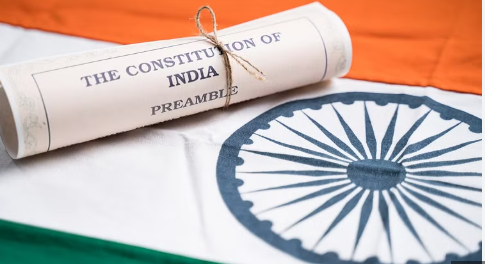Office of Governor and Related Concerns (GS Paper 2, Polity)

Why in News?
- Recently, the President of India appointed Ajay Bhalla as the Governor of Manipur, General V.K. Singh (Retd.) as the Governor of Mizoram, and reassigned Arif Mohammed Khan, the Governor of Kerala, to Bihar.
- These appointments have brought the office of the Governor back into focus, prompting discussions on its role, challenges, and constitutional significance.
Provisions Related to the Office of the Governor
The Governor is the constitutional head of a state, with specific powers and duties under the Constitution of India.
- Constitutional Provisions:
- Article 153: Mandates that there shall be a Governor for each state, with the provision that one Governor can serve multiple states.
- Article 154: Grants the executive powers of the state to the Governor. These powers can be exercised either directly by the Governor or through officers subordinate to them.
- Appointment:
- Article 155: The President appoints the Governor of each state. Though appointed by the President, the Governor is not an employee of the Government of India and must not hold any office of profit during their tenure.
- Qualification:
- Must be an Indian citizen, at least 35 years old, and not a member of Parliament or any state legislature.
- Oath:
- As per Article 159, the Governor must take an oath before the Chief Justice of the High Court or the senior-most available judge.
- Legislature Power:
- Article 174: The Governor may recommend dissolving the legislative assembly if no party can form a government or upon the Chief Minister's advice.
- Article 175(2): The Governor can call for a floor test to verify government majority and send messages to the legislature.
- Article 176: The Governor addresses the legislature after general elections and annually, explaining the reasons for summoning the assembly.
- Constitutional Discretionary Powers:
- The Governor has powers to appoint the Chief Minister when no party has a clear majority, dismiss the Council of Ministers, and dissolve the legislative assembly when required.
- Term of Governor:
- Article 156: The Governor holds office at the President's pleasure, typically for a term of five years. However, they remain in office until their successor assumes charge, even after their term expires.
Challenges Related to the Office of Governor
The office of the Governor has faced several challenges over the years, leading to discussions about its reform and functioning.
- Political Neutrality and Impartiality: Governors are appointed by the President on the advice of the central government, often leading to concerns about their impartiality, especially if they have political ties with the ruling party. This raises questions about whether they are functioning as neutral arbiters or agents of the central government.
- Misuse of Article 356 (President’s Rule): The Governor's power under Article 356 to recommend President's Rule has been controversial, often seen as undermining federalism and democratic principles. There have been instances where this power has been used for political reasons.
- Delayed Assent to Bills: Governors have been criticized for delaying or withholding assent to state bills, especially when they conflict with the central government's interests. For example, Tamil Nadu Governor R.N. Ravi faced allegations of using a "pocket veto" in 2023.
- Interference in State Administration: The involvement of Governors in active politics often leads to conflict with elected state governments, disrupting the democratic functioning and creating tension between the state and central governments.
Committees Related to the Office of Governor
Several commissions have examined the role and powers of Governors, providing recommendations for reform:
- Sarkaria Commission (1988): Focused on strengthening federalism and curbing the politicization of the Governor’s office.
- Venkatachaliah Commission (2002): Recommended that the appointment of Governors should be handled by a committee comprising the Prime Minister, Home Minister, Speaker of Lok Sabha, and the Chief Minister of the concerned state.
- Punchhi Commission (2010): Suggested that the Governor's discretionary powers should be exercised based on democratic conventions, ensuring impartiality and non-interference in state matters.
Way Forward for Reforming the Office of Governor
To address the challenges and concerns related to the office of the Governor, the following steps can be considered:
- Strengthening Federalism: Enhance the role of the Inter-State Council and the Rajya Sabha to check the misuse of the office of the Governor and to foster a more cooperative federal setup.
- Reforming the Appointment Process: Governors could be selected from a panel prepared by the state legislature, with the Inter-State Council serving as the appointing authority, rather than the central government alone.
- Code of Conduct for Governors: A Code of Conduct should be established to guide Governors in exercising their discretionary powers, ensuring that their actions remain in line with constitutional principles and impartiality.
- Restricting the Use of Discretionary Powers: The use of discretionary powers should be clearly defined and guided by democratic conventions, ensuring that Governors refrain from aligning with political ideologies and maintain their neutrality.
By addressing these concerns, India can ensure that the office of the Governor remains a constitutional safeguard, enhancing federalism and upholding the principles of democracy and impartiality.


